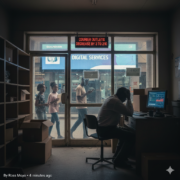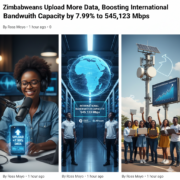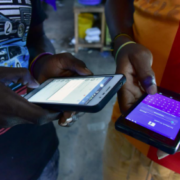More than ten civic societies including media organisations have signed a petition addressed to Postal and Telecommunications Regulatory Authority of Zimbabwe (POTRAZ) Director General Dr. Gift Machengete, complaining about poor network service quality.
The organisations claim that they have been growing cases of erratic service provision that seem not to be receiving due attention from the concerned service providers.
In a letter copied to the service providers and relevant government ministries:
“It is in light of these regulations that we raise concern over the erratic and unreliable service being provided by the country’s mobile phone networks since the beginning of the lockdown. Being disturbed by this sort of service provision, and being conscious to the role of POTRAZ, we humbly request for information on the enforcement mechanisms that have been put in place by your organisation to promote the standards and quality of telecommunication services in Zimbabwe.
The request is prompted by growing cases of erratic service provision that seem not to be receiving due attention from the concerned service providers. For instance, on the 9th of December 2020, internet users nationwide struggled to access internet services as Zimbabwe On Line (ZOL)’s system was not working,” reads part of the letter.
The organisations further accuse service providers for hiding behind ‘too common excuses of undertaking systems upgrades and experiencing technical challenges that are not convincingly explained’.
In bid to access a secure network and internet stability in Zimbabwe during this COVID-19 national lockdown, the organisations, in solidarity with the Media Alliance of Zimbabwe (MAZ) have enquired on measures currently being undertaken by POTRAZ to achieve customers’ expectations.
“We, the undersigned organisations, in solidarity with the Media Alliance of Zimbabwe (MAZ), by virtue of this letter are humbly enquiring on the steps that you have taken, or, intend to take to ensure a secure network and internet stability in Zimbabwe during this COVID-19 national lockdown.
The Postal & Telecommunications (Quality Services) Regulations of 2016, which apply to the quality of voice calls, SMS, Internet and mobile data, customer services, and postal services, clearly lays out the optimum standards for postal and telecommunication services which include issues relating to network availability, data service availability and speed, among others.”
“We further note with concern how access to mobile networks continues limited, particularly for citizens in rural and marginalised communities due to the limited infrastructure. This is despite the existence of the Universal Services Fund for the objective of promoting access to postal and telecommunication services by rural and marginalised communities.
This issue of access to services is critical at a time when Zimbabwe is grappling with the Covid-19 pandemic, which necessitates reliable connectivity and network resilience as aptly captured in your 2020 Second Quarter Industry Report.”
“Being driven by the interest to have better service provision for citizens, and being cognisant of your organisation’s mandate as laid out in Section 4 (1) of the Postal and Telecommunications Act, which includes the following functions and powers, we humbly request that your esteemed office provides us with information on the following:
• Actions that have been taken to promote mobile phone network and internet stability and resilience during the course of the Covid-19 induced national lockdown;
• Mechanisms being put in place to ensure access to telecommunication services by rural and marginalised communities;
• Information on how the recognised and practicable standards for telecommunication services have been enforced;
• Initiatives currently being undertaken to improve access to telecommunication services under the Universal Services Fund;
• Mechanisms that have been put in place to ensure that information centres in rural communities facilitate enjoyment of free expression and the right of access to information to all citizens despite their political affiliation, gender, age, economic and social status.”
The signatories to the document include Media Alliance of Zimbabwe (MAZ), Information for Development Trust (IDT), NGO Human Rights Forum, Zimbabwe Online Content Creators (ZOCC), Crisis in Zimbabwe Coalition, Women’s Coalition in Zimbabwe, National Assembly of Youth Organisations (NAYO), Zimbabwe Council of Churches (ZCC), Zimbabwe Congress of Trade Union (ZCTU) and Zimbabwe Elections Support Network (ZESN) among other various organisations.











Comments